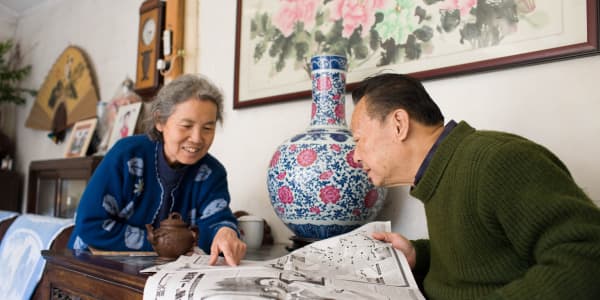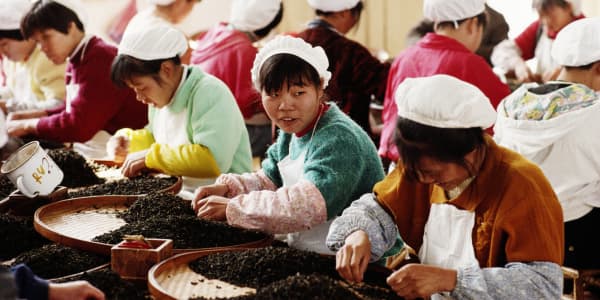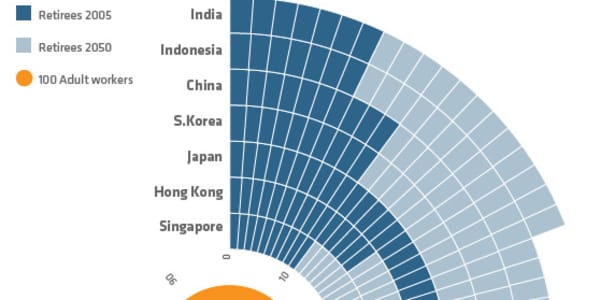
At a nursing home in Beijing, Zhang Zizhong leads a sing-along with his fellow residents - part of their daily routine. The 82-year-old is one of a growing number of elderly Chinese spending their golden years in retirement communities rather than with their families.
"Nursing home life is very good," he says. "I feel really safe here."
Traditionally in China, aging parents live with their children. However, those traditions are breaking down due to changing lifestyles - and the consequences of the one-child policy.
(Read more: China to get a boost from changes to one-child policy)
The controversial policy was introduced in 1979 to help curb a growing population. But 34 years on, the world's second biggest economy is reaping the consequences of a policy that has contributed to falling birth rates.
Life expectancy, helped by a booming economy, meanwhile has risen. And that means China now faces a major challenge: how to take care of a rapidly aging population.
"China's one-child policy is creating more conflict in today's society," Zhang said. "Children don't earn enough and can't support four parents. It's too expensive."
China has an estimated 200 million people over the age of 60. In the next twenty years, the number of senior citizens is expected to rise to over 400 million - larger than the entire population of the United States-according to Feng Wang, a professor with the University of California Irvine.
(Read more: China will getold well before it gets rich)
"How would a shrinking labor force and a weak family structure be able to support this huge number of elderly [people]?" Wang asks.
Given that China lags behind developed countries in terms of its health care and pension systems, an economy is developing for new industries and elderly care services.
According to local media reports in recent months, Beijing is likely to revise the one-child policy this year or next to allow a couple to have a second child if one of the parents has no siblings. Under the current law, a couple can have a second child only if both parents are only children.
(Read more: China could ease one-child policy by year-end)
Analysts at Citi say that China's economy will get a significant boost if it revises the one-child policy.
"China has reached a turning point where the demographic dividend will become a liability," said Citi China economist Shuang Ding said in a recent note.

Opportunity knocks
Former restaurant owner Wang Yun invested more than a million dollars to open two private nursing homes.
"Young people need to take care of their parents and their own child. We will help ease the burden," she said of her business YYN Senior Care.
For her most recent retirement home, Wang converted a 3-star hotel, offering room, board, and group activities to senior citizens for roughly $800 a month. Residents also have access to medical care 24/7, as well as a pharmacy and massage area.
(Read more: China's solution to elderly neglect: Sue your kids)
Resident Zhang believes nursing homes are good alternatives for China's grey population.
His son and daughter work, are married and live life as middle class Chinese. "My children go to work early at 6am and come back home at 6pm. It can get very lonely," he said. "They like to eat at McDonalds, KFC, and other fast food but I don't."
He feels lucky to be able to afford to stay at the home. "There are a lot of social problems for the elderly. No one has the time to look after us," he said.
In July, the government introduced the Elderly Rights Law to allow seniors to take their children to court for neglect.
(Read more: Retirement homes are no longer taboo in Asia)
Nursing home owner Wang said despite growing competition, she hopes to expand the business and open another home next year.
The biggest hurdle for the industry, she says, is changing the mindset of Chinese people to find retirement homes culturally acceptable.
"Many senior citizens are not too open-minded [about nursing homes] compared with the West," she said. "Our challenge comes from the family."
— By CNBC's Eunice Yoon. Follow her on Twitter: @eyoonCNBC





